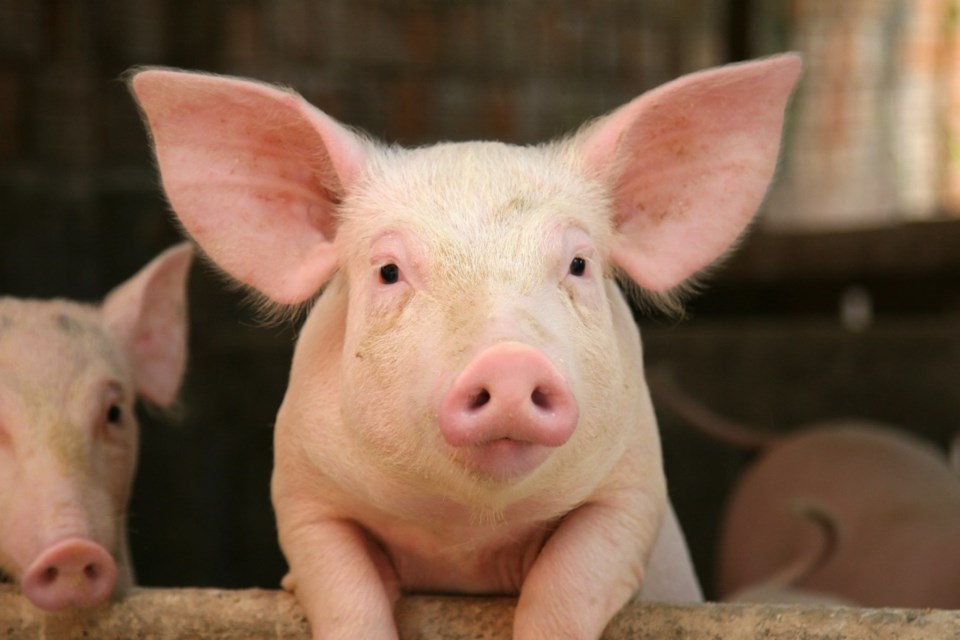Canada is bracing for impact. The massive blow won’t shake china off the shelves, but rather, will arrive in the tiniest of forms — a virus or bacteria that can replicate itself and hitch a ride on almost anything, killing livestock in its wake.
The nation’s farmers and processors are preparing for a time when African swine fever reaches Canada, a possibility that becomes more likely each day. With attention, effort and funds, it appears the country is well positioned to thwart the worst ravages of the illness.
ASF can kill 50 to 100 percent of pigs in an infected barn, and an outbreak in North America could cause economic losses of US$5-$7 billion annually, based on U.S. Department of Agriculture estimates.
The disease is estimated to have cost Asia more than $150 billion already, with $130 billion of that in China alone, where the herd was devastated by the illness in 2019.
Canada has experience with industry-changing livestock illness. A relatively small outbreak of BSE caused billions of dollars in damage to the Canadian beef industry, starting in 2003, and some producers say they still haven’t recovered from its effects on markets and on other facets of the beef business.
Livestock diseases are high on the agenda at industry meetings this fall, and they should be. A slow reaction that allows an infection to spread out of control could devastate Canadian agriculture, especially when it comes to the pork business.
Hogs have only recently become profitable again, which has encouraged a long-overdue renewal of infrastructure. A halt to the pork supply chain due to export restrictions from disease outbreaks would inevitably result in animal destruction and huge farm losses.
The potential impact is well understood.
So, it is a good thing the federal government has allocated more than $45 million to the ASF Industry Preparedness Program and another $20 million to build preparation and prevention capabilities in the Canadian Food Inspection Agency.
Pork agencies are already planning their applications to the program. Last week’s agreement by Alberta Pork members to pay a five cent per head levy to help fund lobby efforts for a government safety net, and for continued planning for animal disease emergencies, was an excellent move that might be copied or equally funded by other provincial organizations.
Elsewhere, Animal Health Canada is drafting a strategy to control wild pigs that are considered a vector for spread of ASF should it arrive in Canada. Its efforts are part of the Pan-Canadian African Swine Fever Action Plan.
On another front, the National Centre for Foreign Animal Disease in Winnipeg is a reference laboratory for ASF, as designated by the World Organization for Animal Health. Reference laboratories are internationally recognized centres of expertise on specific animal diseases and play a critical role in international monitoring and control.
A Canadian Action Plan to deal with ASF was put in place more than a year ago. Work has been underway on better disease surveillance, improved border measures and zoning agreements that would isolate infected regions and allow hog trade to continue from those free of the illness.
With so much of Canada’s industry dependent on exports, losses to producers could limit their ability to rebuild after a significant infection. Canadian livestock eat their way through significant acres-worth of crops and byproducts, so injuries to one part of agriculture are felt throughout the sector.
That is why livestock industry efforts and government responses are important and welcome. Much is being done and continues to be done. Continued attention remains vital.
Karen Briere, Bruce Dyck, Barb Glen and Mike Raine collaborate in the writing of Western Producer editorials.




